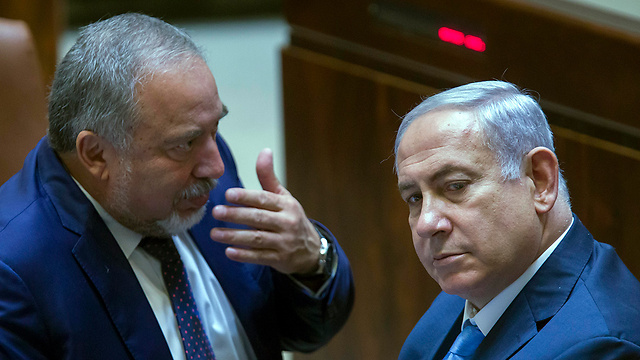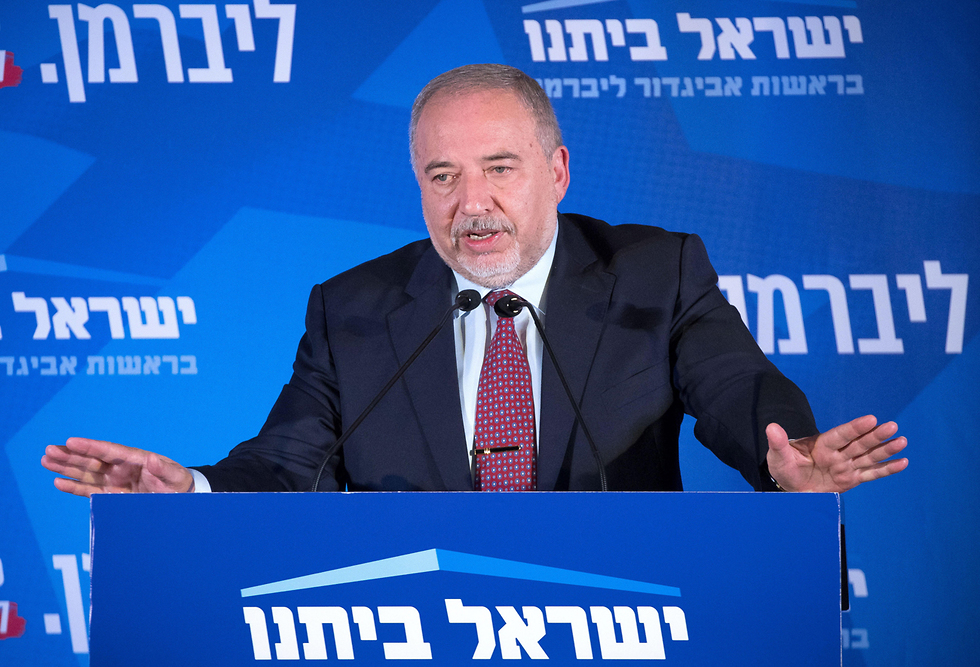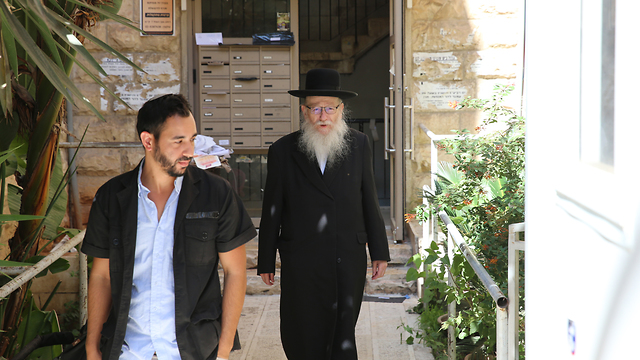

Liberman the kingmaker ensures Netanyahu is no longer on top
The Yisrael Beytenu leader's decision to turn his back on his former boss raised his profile and increased his strength, extending his popularity beyond his original base of ex-Soviet immigrants as his message against ultra-Orthodox political power resonated with secular Israelis
But on Tuesday, the prime minister failed, for the second time since April, to secure a clear victory in the Knesset elections.
And now all eyes are turning to a former close aide to the Likud leader, who stood up to his former boss five months ago, and may now decide whether the Netanyahu era continues, or comes to an end.
The potential new kingmaker is Avigdor Liberman, a far-right immigrant from Moldova who lives in a settlement in the West Bank and who served as an aide to Netanyahu during the 1990s.
Liberman, 61, has none of Netanyahu's polish and international prestige, but took a huge gamble by refusing to join a Likud-led coalition government on a point of principle in an election last April.
With most votes counted it appears he reaped the reward by boosting his party's seat numbers in the Sept. 17 rerun.
The conservative Netanyahu emerged tied with his centrist rival Benny Gantz. Neither has enough support from like-minded parties to create a coalition with a clear parliamentary majority. That has left both relying on Liberman.
"The conclusion is clear - all that we have said during the election campaign is coming true," he told reporters on Wednesday.
"There is only one option - a national unity government, a liberal, broad government, and we will indeed say again, we will not join any other option."
Liberman, a former defense minister under Netanyahu, made his stand on the long-standing divide within Israel between its secular and ultra-religious communities.
He refused to serve alongside ultra-Orthodox parties who have long been allies in Netanyahu-led ruling coalitions, and who wield influence over everyday life in Israel, including the administration of marriage and divorce.
Liberman's determined secular stance played well with other secular Israelis, including his fellow immigrants from the former Soviet Union, many of whom are not deemed Jewish according to strict ritual law.
Liberman originally belonged to Netanyahu's Likud Party but quit it to form the far-right Yisrael Beytenu (Israel is our Home) in 1999, appealing to fellow Russian-speakers with his secularist agenda and tough talk against Palestinians.
Liberman is now pushing for a "national unity" government that would include his own party, which has 9 of the parliament's 120 seats, alongside Likud with 31 seats and Gantz's Blue and White party, with 32.
Where Netanyahu fits into the new picture is anyone's guess.
Gantz, a centrist former army general, has said he is open to teaming up with Likud, but not if it is led by Netanyahu.
During months of campaigning Gantz excoriated Netanyahu over long-standing corruption allegations.
Netanyahu, who denies wrongdoing, is set for a pre-trial hearing next month.
He is expected to argue that the charges should be dismissed in the national interest, and his critics believe that is a key motive for him seeking so strenuously to continue his premiership into a record fifth term.
Liberman served in several Israeli cabinets, most recently as Netanyahu's defense minister. But he resigned from that post last year, protesting at what he saw as government weakness in the face of rocket attacks by Palestinian Islamists in Gaza.
That walkout destabilized Netanyahu's coalition, and ultimately led to the April election, in which Liberman won five seats.
Netanyahu, a master coalition-builder, was widely expected to repeat his past successes in putting together a government.
But he was blindsided when Liberman refused to lend his support, citing his dissatisfaction that many ultra-Orthodox are granted exemptions from service in the Israeli military.
That gambit improved Liberman's standing - raising his profile, potentially doubling his seats and, early indications suggest, extending his popularity beyond his original base of ex-Soviet immigrants.
With campaign billboards reading "Make Israel Normal Again," Liberman's secular-nationalist platform included support for Jewish settlements in the West Bank.
Most world powers deem the settlements as illegal, a view disputed by Israel.
Liberman, who as a younger man worked as an airport baggage handler and bar bouncer, seemed at ease while electioneering.
Netanyahu, ubiquitous on the airwaves and social media, emerged from the campaign hoarse and subdued, giving a downbeat post-election address that neither claimed victory nor conceded defeat.
Liberman said he did not rule out Netanyahu as a political ally or underestimate a leader whose supporters still regard him as a "magician".
"(But) I will not go to a Halacha government, he said, in a reference to Jewish law and ultra-Orthodox party participation in a coalition.



















